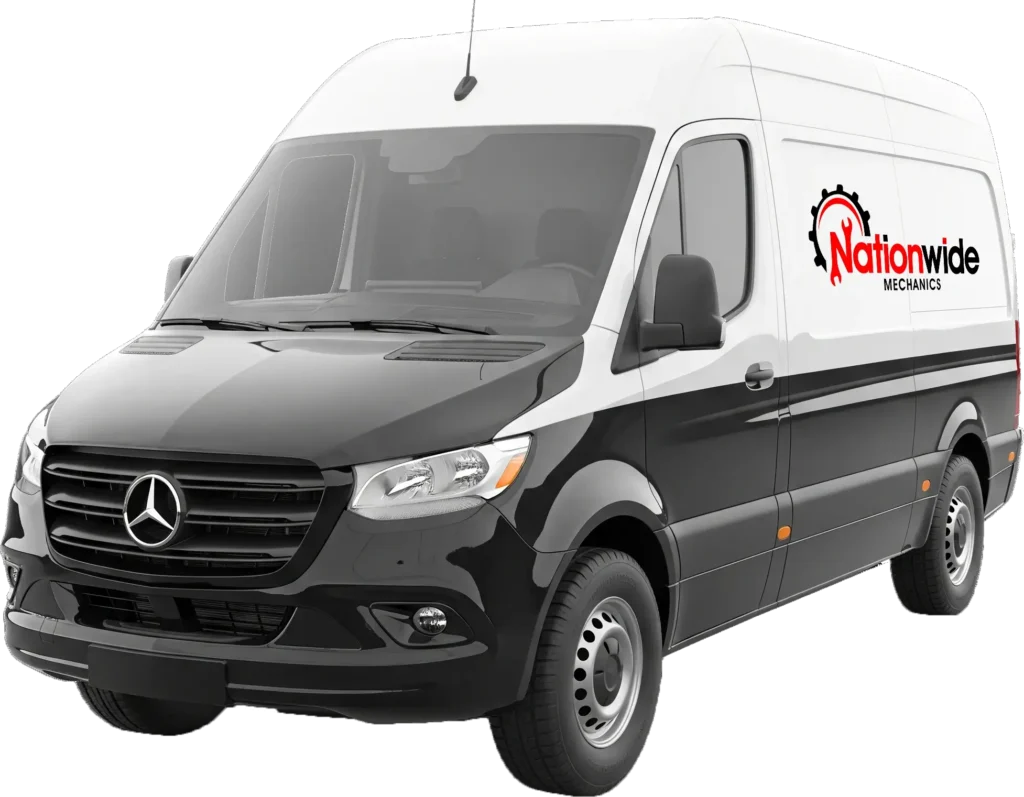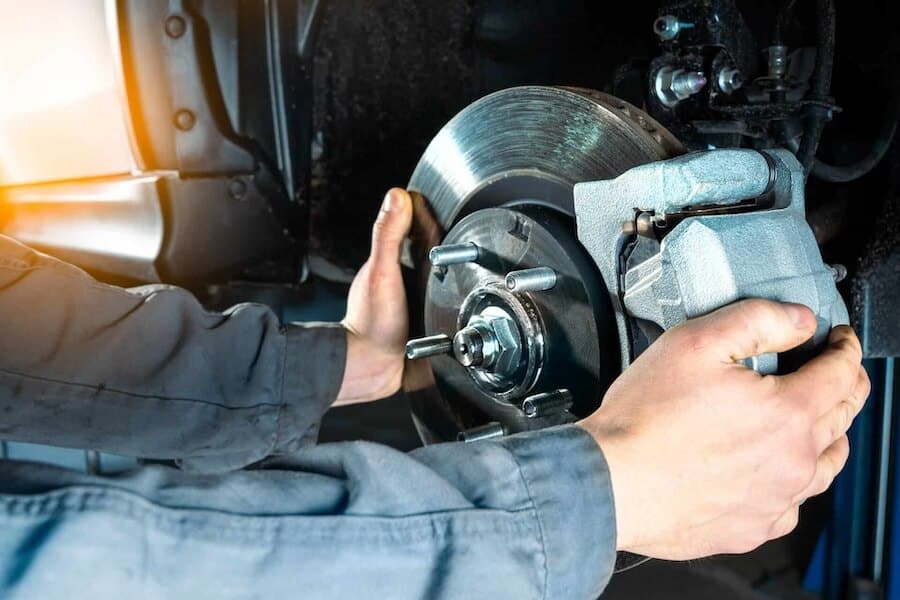What Is the Brake System and How Does It Work?
Your brakes convert your vehicle’s motion into heat using friction. When you press the pedal, hydraulic fluid pushes the caliper pistons, clamping brake pads against the rotor to slow the wheel. Modern systems use ABS and stability control for safer, straighter stops in all conditions. Keeping pads, rotors, calipers, and fluid in top shape is essential for stopping power and safety.
Why the Brakes Matter
- Safe stopping distances and confident pedal feel
- Prevents rotor damage and costly caliper failures
- Reduces vibrations, squeals, and pulling while braking
- Keeps ABS and traction control operating correctly
Important to Know
- Typical pad life: 30,000–70,000 miles (driving style and conditions vary).
- Rotors often last 1–2 pad sets; replace if below minimum thickness, warped, or heavily scored.
- Brake fluid is hygroscopic (absorbs moisture). Flush every 2–3 years or per manufacturer schedule.
- If the red brake warning light is on or the pedal sinks to the floor, do not drive—contact us immediately.
- We use quality OEM or equivalent pads/rotors matched to your vehicle for quiet, reliable stopping.
How Brake Repair Is Done
- Road Test and Inspection
Verify the concern, check pedal feel, noises, vibration, and pulling. - Brake System Measurements
Measure pad thickness, rotor thickness and runout; inspect hoses, calipers, slides, hardware, and fluid condition. - Service/Replacement
- Replace pads (front/rear) and rotors as needed to meet spec.
- Clean and prepare hubs; lubricate caliper pins and contact points.
- Replace hardware, sensors, and shims where required.
- Perform brake fluid service if contaminated or due by time/mileage.
- Reassembly and Torque
Reinstall wheels; torque lug nuts to spec. - Verification
Bed-in pads, confirm smooth braking, ABS operation, and no leaks. Provide a digital report and recommendations.
When to Replace Brakes
- Pad thickness at or under 3 mm, or inner pads wearing faster than outer
- Rotors below minimum thickness, blue/heat spots, or pulsation from excessive runout
- Sticking or leaking caliper, torn boots, seized slide pins
- Contaminated or dark brake fluid, moisture content high, or service due by time
Signs You May Need Brake Repair
- Squealing, squeaking, or grinding when braking
- Vibration or steering wheel shake on stops
- Car pulls to one side under braking
- Soft or spongy pedal, longer stopping distance
- Brake warning or ABS light illuminated
- Burning smell, low brake fluid, or visible leaks at wheels
How Important Is This Service?
Critical. Brakes are your vehicle’s most important safety system. Delaying service can damage rotors and calipers and increase stopping distance. Nationwide Mechanics brings certified technicians to your driveway with quality parts and precise installation for safe, quiet, consistent braking.
What You Get with Nationwide Mechanics
- Certified mobile brake specialists
- Upfront pricing and digital inspection report
- OEM or equivalent pads/rotors, new hardware where required
- Proper lubrication, torque, and pad bedding procedures
- Post-repair road test and verification
- Convenient at-home or office service




